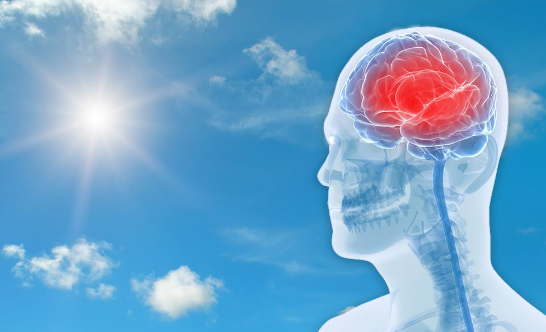(单词翻译:单击)
Science has already proved that sunny days can lead to sunny dispositions, helping improve a person's mood, intelligence and memory -- and researchers in China have now shed light on why.
科学已经证明,晒太阳能让人的个性也变得阳光,有助于改善心情、激发才智,提高记忆力--我国研究人员如今揭示了其中的原理。
A team at the University of Science and Technology of China in Hefei, Anhui province, discovered that ultraviolet light -- an element of sunshine -- activates a change in the brain that can make us smarter.
位于安徽合肥的中国科技大学的研究团队发现,阳光中的紫外线能激活大脑中的变化,从而使人们变得更加聪明。
Tests on mice showed that moderate exposure to UV light enhances perception and learning, according to Xiong Wei, a professor at the university's School of Life Sciences who co-led the study.
据牵头这项研究的中国科学技术大学生命科学学院的熊伟教授表示,对小鼠的试验表明,适度暴露在紫外线下可以增强感知和学习能力。

Mice were exposed to 50 milijoules per square centimeter of UV, he said, which is equal to 20 to 30 minutes of ambient midday sun in Florida in summer.
他表示,这些小鼠被暴露在每平方厘米50毫焦的紫外线中,这相当于在佛罗里达夏季的正午晒20到30分钟的太阳。
Using single-cell mass spectrometry, an extremely sensitive and specific analytical technique, scientists found that a metabolic pathway in the brain was involved.
通过利用单细胞质谱分析技术--一种极其灵敏和具体的分析技术,科学家们发现大脑中有一种代谢途径与此有关。
Exposure to UV increases blood urocanic acid, which reacts with brain cells to boost levels of glutamate, a neurotransmitter involved in cognitive functions such as learning and memory.
紫外线照射能够增加血液中的尿刊酸,尿刊酸与大脑细胞发生反应,从而提升谷氨酸水平,而谷氨酸是一种与学习和记忆等认知功能相关的神经递质。
Xiong said previous research had found that urocanic acid was converted to glutamate in the liver, but this is the first time it has been demonstrated that the synthesis process can happen in the brain--a finding that surprised the team.
熊伟教授称,先前的研究曾发现尿刊酸在肝脏中被转化为谷氨酸,但现在是第一次证明该合成过程还可以发生在大脑中,这是一个让该研究团队惊喜的发现。


